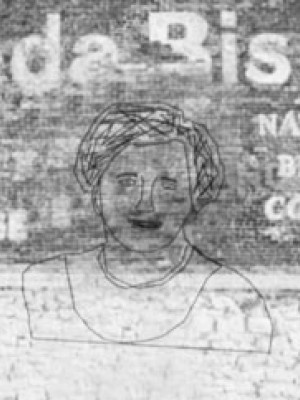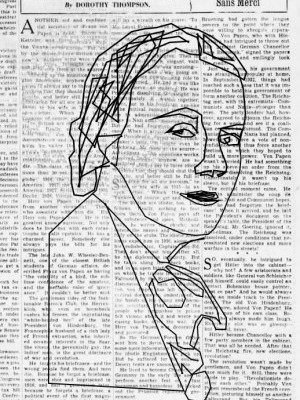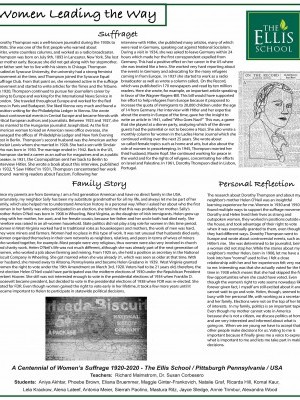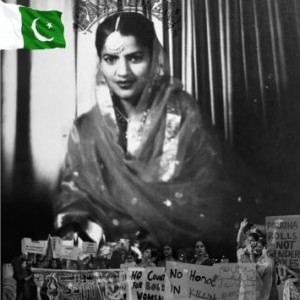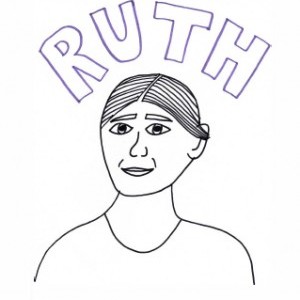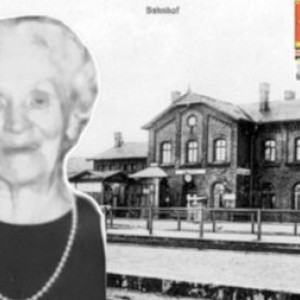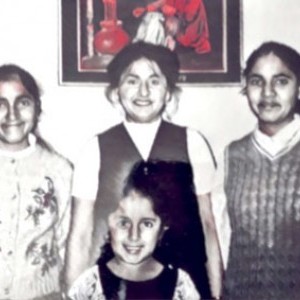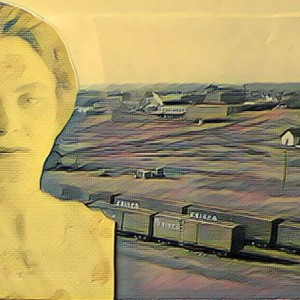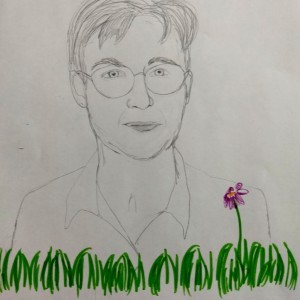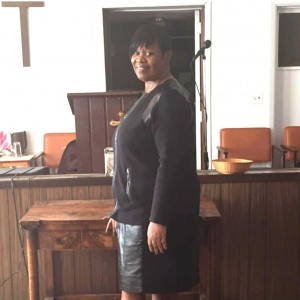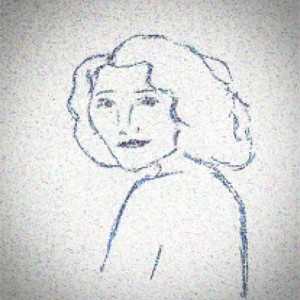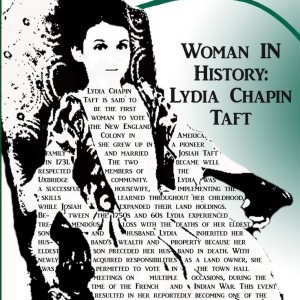Antonia Meier
The Ellis School | Pittsburgh, PA | 11th Grade
Inspirational Family Member
Sally, My "American Grandmother"
Since my parents are from Germany, I am a first generation American and have no direct family in the USA. Fortunately, my neighbor Sally has been my substitute grandmother for all my life, and always let me be part of her family, which also helped me to understand American history in a personal way. When I asked her about who the first woman in her family was who participated in an election, she told me that this was probably her mother. Sally’s mother, Helen O’Neil, was born in 1908 in Wheeling, West Virginia, as the daughter of Irish immigrants. Helen grew up living with her mother, her aunt, and her female cousin, because her father and her uncle both had died early. She therefore was raised in an all-women household. State politics did not play a big role for women in this time period. Women in West Virginia worked hard in traditional roles as housekeepers and mothers, the work of men was hard, they were miners and farmers. Women had no place in this type of work. It was not unusual that husbands died early. Women organized themselves in their own networks as neighbors, relatives, and peers in terms of wives of miners who worked together, for example. Most people were very religious, thus women were also very involved in church and charity work. Helen O’Neil’s life was not much different, although she was already part of the next generation of women, who worked a job above farming and mining. From 1925 on, she held a position as secretary in the National Biscuit Company in Wheeling. She got married when she was already 31, which was seen as older at that time. With her husband, she moved away to Altoona, Pennsylvania and became Helen Graziano in 1939. West Virginia granted women the right to vote under the 19th Amendment on March 3rd, 1920. Voters had to be 21 years old, therefore, the first election Helen O’Neil could have participated in was the midterm elections of 1930 under the Republican President Herbert Hoover. She still was not interested enough to vote in the presidential elections of 1932 when Franklin D. Roosevelt became president, but decided to vote in the presidential elections of 1936 when FDR was re-elected. She voted for FDR. Even though women gained the right to vote early in her lifetime, it took a few more years until it became important to Helen to participate in statewide political decisions.
Historical Figure I Admire
DorothyThompson
Dorothy Thompson was a well-known journalist during the 1930s to 1950s. She was one of the first people who warned about Hitler, wrote countless columns, and worked as a radio broadcaster. Thompson was born on July 9th, 1893 in Lancaster, New York. She lost her mother early. Because she did not get along with her stepmother, her father sent her to live with his sisters in Chicago. Thompson studied at Syracuse University, the university had a strong feminist movement at the time, and Thompson joined the Syracuse Equal Suffrage Club. From that point on, she remained active in the suffrage movement and started to write articles for the Times and the Tribune.
In 1920, Thompson continued to pursue her journalism career by going to Europe and working for the International News Service in London. She traveled throughout Europe and worked for the Red Cross in Paris and Budapest. She liked Vienna very much and found a position writing for the Philadelphia Ledger in Vienna. She wrote about controversial events in Central Europe and became friends with critical European authors and journalists. Between 1923 and 1927, she was married to the Hungarian journalist Joseph Bard. As the first American woman to lead American news office overseas, she managed the offices of the Philadelphia Ledger and New York Evening Post in Berlin.
Thompson’s second husband was the American author, Sinclair Lewis, whom she married in 1928. She had a son with Sinclair who was born in 1930. The marriage ended in 1942. Back in the US, Thompson started a career as an author for magazines and as a public speaker. In 1931, the Cosmopolitan sent her back to Berlin to interview Hitler. She wrote a book about this interview, published in 1932, “I Saw Hitler.”
In 1931, Thompson concentrated her work around warning readers about Fascism. Following her interview with Hitler, she published many articles, many of which were read in Germany, speaking out against National Socialism. During a visit in 1934, she was asked to leave Germany within 24 hours which made her the first correspondent expelled from Germany. This had a positive effect on her career in the US where she was treated like a hero. She worked very hard reporting about the events in Germany and advocating for the many refugees coming in from Europe. In 1937 she started to work as a radio broadcaster as well as wrote a column called, "On the Record", which was published in 170 newspapers and read by ten million readers. Here she wrote, for example, an important article speaking in favor of the Wagner-Rogers-Bill. This bill would have supported her effort to help refugees from Europe because it proposed to increase the quota of immigrants to 20,000 children under the age of 14 from Germany.1 Her interview with Hitler and her expertise about the events in Europe of the time, gave her the insight to write an article in 1941, called “Who Goes Nazi?” This was a game that she played at a dinner party, analyzing which of the dinner guests had the potential or not to become a Nazi.2 She also wrote a monthly column for women in the Ladies Home Journal, which she continued writing over the next 25 years. She wrote about so-called female topics such as home and arts, but also about the role of women in peacekeeping. In 1945, Thompson married her third husband, Maxim Kopf. She continued working for peace in the world and for the rights of refugees, concentrating her efforts on Israel and Palestine. In 1961, Dorothy Thompson died in Lisbon, Portugal.
SOURCES +
What the Project Means to Me
The research about Dorothy Thompson and about my neighbor’s mother Helen O’Neil was an insightful learning experience for me. Women in 1930 and 1950 found multiple ways to support the suffrage movement. Dorothy and Helen lived their lives as strong and outspoken women, they worked in positions outside of the house, and took advantage of their right to vote when it was eventually granted to them, even though they had dfferent ways.
Dorothy Thompson went to Europe and wrote about controversial events, such as Hitler’s rise. She was determined to be journalist, being a woman did not stop her. While the stories about my neighbor’s mother, Helen, born in 1908, let me have a look into how “normal” women used to live. I felt a close relationship with her and her experiences felt very real to me. Interesting was that she actually voted for the first time in 1936 which means that she had skipped the first few opportunities when she could have voted. Even though the women’s right to vote seems nowadays like a forever given fact, I myself am still excited about it and cannot wait to go and vote. Helen, though, seemed too busy with her personal life, with working as a secretary, and her family. Elections were not on the top of her list of interests.
In my family, politics is an important topic. Even though my mother cannot vote in America because she is not a citizen, we discuss politics at home, and are very interested and informed about what is going on. When we are young we have to accept that other people make decisions for us. Voting to me is important because it really gives me a voice to express what is important to me and lets me take part in making decisions.
Explore the Archive
More From This Class
Click on the thumbnails below to view each student's work.Deadline Extended
There's still time to join Women Leading the Way.
Become a part of our storytelling archive. Enroll your class today.
Join the Project

